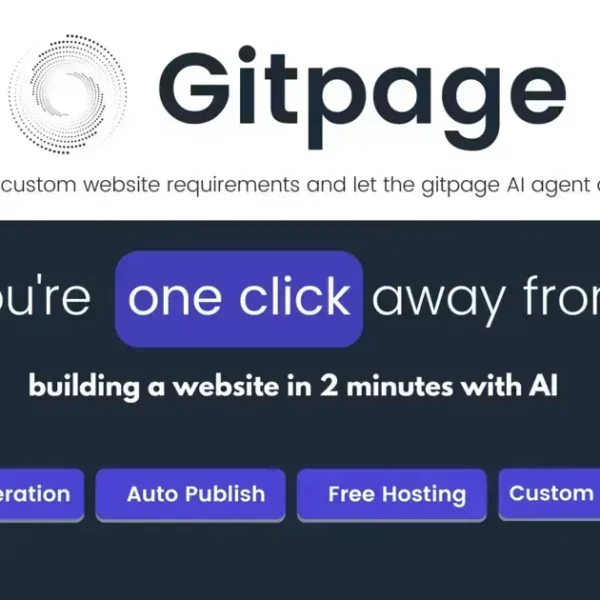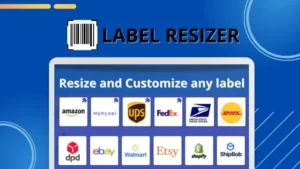Understanding CRM pricing is crucial for businesses seeking the right solution. Factors influencing price include features, number of users, and ongoing support. By researching options, setting a budget, and negotiating effectively, businesses can choose a CRM that fits their needs without overspending.
CRM pricing is essential for businesses looking to enhance their customer engagement and streamline operations. By understanding the various pricing models available, companies can find solutions tailored to their unique needs without stretching their budgets. This article delves into what CRM pricing entails, the factors that influence these costs, and offers practical tips for choosing a solution that doesn’t break the bank.
Understanding CRM Pricing Models
Understanding CRM pricing models is crucial for businesses seeking the right solution that fits their budget. There are several models available, each designed to cater to different needs and scales of operations.
Subscription-Based Pricing
Most CRM systems operate on a subscription-based pricing model. This means businesses pay a monthly or annual fee for access to the software. The fee often varies based on the number of users and features selected, providing flexibility for companies of all sizes.
Tiered Pricing
Another common model is tiered pricing, where service providers offer multiple packages with different levels of features. Businesses can choose from basic to advanced plans depending on their needs. This approach allows for scalability as the company grows.
Freemium Models
Some CRM solutions offer a freemium model, allowing users to access basic features for free. Additional functionality can be unlocked through premium subscriptions. This allows businesses to test the CRM without an initial investment, ensuring it meets their needs before committing financially.
One-Time Payment
While less common today, some CRM solutions require a one-time payment for ownership of the software. This can be appealing for businesses that prefer to avoid ongoing fees. However, it usually comes with additional costs for updates and support.
Pay-As-You-Go Pricing
A pay-as-you-go model charges businesses based on their usage of the CRM system. This is beneficial for companies with fluctuating needs, as they only pay for what they use. It can be an economical choice for small businesses just starting.
Factors Affecting CRM Prices

When determining factors affecting CRM prices, it is essential to recognize that many variables can influence the overall cost of a CRM system. Understanding these factors will help businesses make informed decisions.
Features and Functionality
The range of features included in a CRM software significantly impacts its price. Basic systems may offer essential functionalities, such as contact management and sales tracking, while more advanced options might include automation tools, analytics, and customer support features.
Number of Users
The pricing model often considers the number of users needing access to the CRM. Typically, a higher number of users results in increased costs. Some vendors offer bulk pricing discounts, so it’s wise to evaluate your needs carefully.
Implementation and Setup
Costs associated with implementation and initial setup can vary widely between CRM providers. Some systems are straightforward to install and use, while others may require extensive configuration, leading to additional expenses for professional services or support.
Customization and Integration
If a business requires specific customizations or integrations with existing tools, this can raise the overall cost. Tailoring a CRM to fit unique processes or connecting with other software systems often incurs additional fees.
Support and Maintenance
Ongoing support and maintenance are crucial aspects that affect pricing. Providers may charge extra for premium support services, such as dedicated account managers or faster response times. It is essential for businesses to consider these recurring costs when budgeting for a CRM solution.
Top CRM Solutions and Their Costs
When exploring top CRM solutions and their costs, it is beneficial to understand the options available in the market. Here are some of the most popular CRM platforms, along with their pricing structures.
1. Salesforce
Salesforce is one of the leading CRM solutions globally. Their pricing starts at approximately $25 per user per month for basic features. More advanced plans can go higher, depending on functionality and user count.
2. HubSpot CRM
HubSpot offers a free CRM option, making it accessible for small businesses. For more advanced features, users can opt for paid plans starting at $50 per month, which include marketing automation and more sophisticated tools.
3. Zoho CRM
Zoho CRM is known for its affordability and comprehensive features. Pricing begins at around $12 per user per month, with scalable options that can suit growing businesses.
4. Microsoft Dynamics 365
Microsoft Dynamics 365 provides powerful CRM capabilities. It typically starts at $65 per user per month, and offers a wide range of features tailored for both sales and customer service.
5. Pipedrive
Pipedrive specializes in sales management and starts at $15 per user per month. Its visual pipeline is particularly appealing to many sales teams, offering a user-friendly interface.
Each of these CRM solutions offers varying features and pricing tiers that can meet the needs of different businesses. When choosing a CRM, it’s important to consider the specific requirements of your organization, including budget and desired functionalities.
How to Choose the Right CRM for Your Budget

Choosing the right CRM for your budget can seem challenging, but there are key steps to simplify the process. Here are some valuable tips to help you make an informed decision.
1. Determine Your Budget
First, assess how much your business can afford to spend on a CRM system. Consider not just the initial costs but also ongoing expenses such as subscription fees, training, and support.
2. List Essential Features
Identify the critical features your business needs. For example, if sales tracking is vital, look for CRM systems that excel in that area. Understanding necessary functionalities helps narrow your options and focus on what truly adds value.
3. Compare Different Solutions
Once you have a budget and a list of required features, compare various CRM solutions. Look at user reviews, pricing plans, and customer support options. This information will help you determine which systems fit best within your financial constraints.
4. Take Advantage of Free Trials
Many CRM providers offer free trials that allow you to test the software before committing. This is an excellent way to evaluate if the platform meets your needs and justifies the cost.
5. Consider Scalability
Finally, think about the future needs of your business. Choose a CRM that can grow with you. If you expect to expand, look for systems that offer tiered pricing, so you can upgrade as necessary without disrupting your operations.
Negotiating CRM Pricing for the Best Deals
Negotiating CRM pricing is essential for ensuring your business secures the best deals possible. Here are some effective strategies to help you achieve a favorable outcome.
1. Research Before You Negotiate
Understand the average pricing for CRM solutions in the market. By knowing what others pay, you can leverage this information during your negotiation. Research various CRM providers, their features, and customer reviews to gain insights.
2. Be Clear About Your Needs
Clearly define what your business needs from a CRM system. Communicate these requirements to the vendor, making it evident that you are looking for specific features and support. This clarity will help the vendor tailor their offer to meet your needs.
3. Ask About Discounts
Don’t hesitate to inquire about discounts for annual payments, bulk user purchases, or long-term commitments. Many CRM providers offer discounts for upfront payments or loyalty. It’s always worth asking!
4. Use Competition to Your Advantage
If you have multiple CRM options you are considering, let the vendors know. Mentioning that you are looking at other platforms can encourage them to provide a better deal to win your business.
5. Be Prepared to Walk Away
If negotiations are not progressing favorably, be willing to walk away. Having this mindset can motivate the vendor to offer a more appealing deal rather than lose a potential customer. Know your budget and stick to it to avoid overspending.
In Conclusion: Choosing the Right CRM for Your Business
Selecting the best CRM solution is vital for your business’s success. By understanding crm pricing models and evaluating various options, you can make a well-informed choice.
It’s important to consider factors like features, costs, and scalability. Don’t forget to negotiate pricing to ensure you get the best deal possible. With the right CRM system, you can enhance customer relationships and improve operations, giving your business a competitive edge.
By following these steps, you can confidently choose a CRM that fits both your needs and budget, setting your business up for growth and success.
FAQ – Frequently Asked Questions about CRM Pricing and Selection
What is the typical cost of a CRM solution?
The cost of CRM solutions can vary widely, starting from free options to over $100 per user per month, depending on features and capabilities.
How do I know which features I need in a CRM?
Identify your business requirements and prioritize functionalities such as contact management, sales tracking, and reporting based on your specific goals.
Are there free CRM options available?
Yes, many CRM providers offer free versions with basic features, such as HubSpot CRM, which can be great for startups and small businesses.
How can I negotiate better pricing for a CRM?
Research competitor pricing, be clear about your needs, and don’t hesitate to ask about discounts for bulk purchases or annual contracts.
What are the benefits of using a CRM system?
A CRM system can help improve customer relationships, enhance sales management, streamline processes, and provide valuable data insights.
How important is scalability in choosing a CRM?
Scalability is very important; as your business grows, you want a CRM that can adapt to increased users and additional features without disruption.




